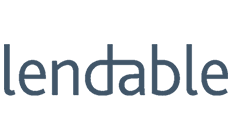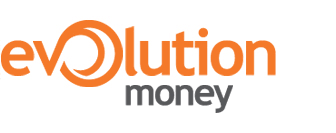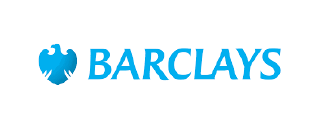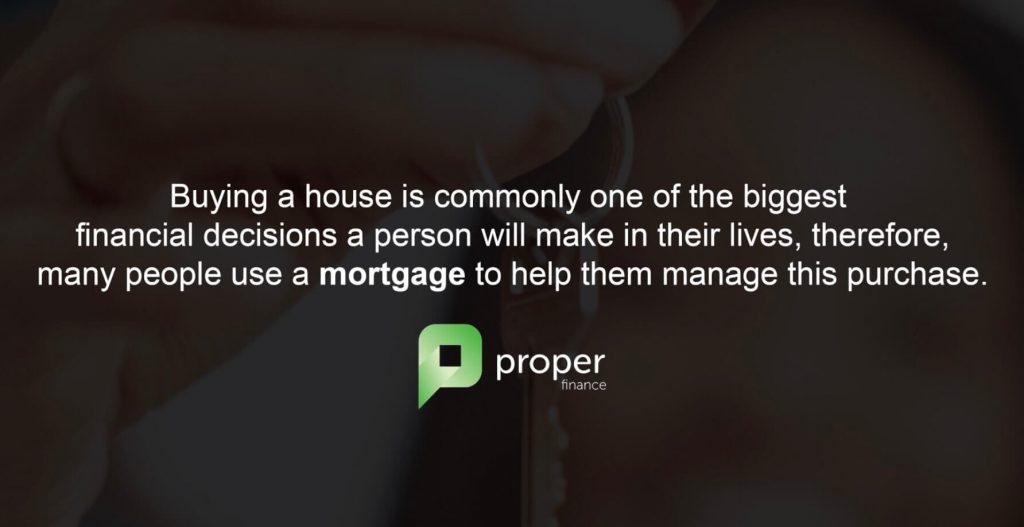Our Lenders
We work with trusted brokers to give you access to a panel of leading lenders well placed to meet your needs at the lowest rates.










Mortgage solutions tailored for you
Unless you are a cash buyer or inherit a properly, most Britons use a mortgage to buy a property. A mortgage is essentially a loan and usually your lender will own a big chunk of your property such as 60% or 70% until the mortgage is paid off in full.
The rates for a mortgage can range between 3% to 7% depending on the market rates and what you are charge will vary on different factors such as being a first time buyer, the size of your deposit, credit score, employment, buy to let, commercial or being self-employed.
At Proper Finance, we have a team of expert mortgage advisors who can help and guide you every step of the way. We compare mortgage rates across the UK including private banks, lenders, challenger banks and more – and we only receive a fee if your mortgage application is approved and successful. Get in touch with us today and we can provide a free quote.
What is a Mortgage?
A mortgage is a type of secured loan that’s used to help borrowers buy a house. Buying a house is commonly one of the biggest financial decisions a person will make in their lives, therefore, many people use a mortgage to help them manage this purchase.
When buying a home with the help of a mortgage, the borrower will normally put down a cash deposit. This cash deposit is typically at least 5% the cost of the property, however you can put down more or less than this, depending upon the mortgage you opt for as well as its LTV (Loan-to-Value).
How Do Mortgages Work?
A mortgage works by loaning you a certain amount of money for the purchase of a property. The percentage of the property the loan covers is known as the LTV (Loan-to-Value) and can vary depending on the mortgage you opt for.
Common LTVs include:
- 70% LTV Mortgages
- 75% LTV Mortgages
- 80% LTV Mortgages
- 85% LTV Mortgages
You can also get 90% and 95% LTV mortgages and no deposit mortgages, however the type of loan you’ll be able to get will depend on the lender’s eligibility criteria, as well as your details and affordability.
The remaining amount of money you’ll need to purchase the property will then typically come from your own pocket, and is usually a lump sum paid upfront called a deposit.
The amount of deposit you’ll need for the purchase of a property will depend on how risky the lender deems you to lend to. Generally, the more risky they deem you, the bigger the deposit will need to be.

Mortgage Example:
You are looking to purchase a property worth £500,000 and based on your mortgage offer, they can give you a 70% LTV at £350,000. This means you have to provide a deposit of the remaining amount which is £150,000 (30%).
You will pay back the mortgage each month until the loan is paid and this could be as long as 20 or 30 years.
You will be given a deal at a rate (ranging from 3% to 7% APR depending on current rates) and deals typically last for 2,3 or 5 years. Once the deal is finished, you will be placed on a high Standard Variable Rate (SVR) so you will likely need to remortgage under different terms.
What Types of Mortgages Are There?
There are various different types of mortgages available, some of the most common types including the following:
- First-time buyer mortgage
- Remortgage
- Buy-to-let mortgage
- Joint mortgage
There’s a range of different mortgage and secured loan options out there. Before settling on one, it’s best to explore the options available, as this will help you to make a more informed decision on picking the loan that works best for you.
As well as different types of mortgages, there are also a variety different rates you can get, including fixed-rate, variable rate and tracker.
Do I Need a Mortgage?
Mortgages are one of the most common methods of buying a property and can provide some much-needed help when you can’t pay the total amount for a house upfront.
People’s experience with a mortgage can vary drastically, as the property, its value, your income and credit status can all differ greatly from others who also use this type of borrowing.
Therefore, whether or not a mortgage is the right choice will depend upon your unique circumstances and how they fit in with the borrowing options available to you.
Additionally, if you have the money to purchase a property outright, or inherit a property from a relative, you won’t need to take out a mortgage. Mortgages are used to help borrowers manage the purchase of a property when they cannot afford the entire cost of it upfront.

Am I Eligible for a Mortgage?
The eligibility criteria for a mortgage will vary depending on the type you opt for as well as your own unique circumstances. However, some of the most common things mortgage lenders will want to see from prospective borrowers include the following:
- A stable income
- Regular and stable employment
- A good/fair credit history
- Based in the UK
- A deposit of the correct amount needed for this loan
When deciding how big of a mortgage a borrower can afford, lenders will look at various factors, including those above, as well as any existing debts and current spending habits.
Can I Get a Mortgage With Bad Credit?
Yes, it is possible to get a mortgage with bad credit, however this can be trickier to get than for those with a good credit history. This is because credit histories are often used to help a lender determine whether or not you’re likely to keep up with repayments on any loan they offer you.
Therefore, when your credit rating is low, lenders can see you as more of a risk to lend to, impacting your eligibility for a mortgage with them.
However, you may still be able to get a mortgage with a bad credit score. In fact, there are some lenders who offer mortgage options specially designed for those with bad credit – but it’s worth noting that these can come with higher fees and interest rates than other, more standard mortgage options.
How Many Times My Salary Can I Borrow for a Mortgage?
The majority of lenders will allow 4 to 4.5 times a borrower’s salary, with some offering as much as 5 or even 6 times this. In the UK, it’s unlikely that you’ll find a mortgage provider willing to offer over this amount.
Below are some examples to help you see how much you could borrow depending on your salary:
Salary |
4x |
4.5x |
5x |
| £25,000 | £100,000 | £112,500 | £125,000 |
| £30,000 | £120,000 | £135,000 | £150,000 |
| £40,000 | £160,000 | £180,000 | £200,000 |
How Do I Get a Mortgage?
When looking to get a mortgage, it’s best to first compare the options available to you and select one that best suits your borrowing needs and affordability.
Once you’ve selected the mortgage right for you, you can then apply with the mortgage lender. The application for a mortgage will include a lot of paperwork. Therefore it’s good to organise as many of the required documents as possible in preparation for this application. These documents can include:
- Proof of ID (including a drivers license or a passport, bank statements and a utility bill)
- Proof of expenses (including bank statements)
- Proof of income (including payslips if in PAYE employment, and self-assessed tax return forms if self-employed)
Generally, it can take around 2 to 6 weeks for a mortgage application to get approved. The application process can however be sped up with the help of a mortgage broker, who will be able to help you find the deals that best suit your situation.